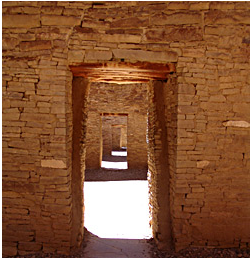Publication Date
7-1-2016
Abstract
The current U.S. government policy of Indian Self-Determination is determined by the principle of tribal sovereignty, which defines how issues identified in Indian Country are addressed. However, tribal sovereignty represents an ideal that has regularly been ignored or contested by private and corporate entities, as well as state and federal government agencies. My research explores this case study of the successful assertion of tribal sovereignty by the Pyramid Lake Paiute tribe as they worked to save Pyramid Lake, the spiritual and economic heart of their reservation. The Pyramid Lake Tribe employed several strategies to secure water for Pyramid Lake and to save the endangered endemic species of fish, the cui-ui and Lahonton cutthroat trout, from extinction. They were opposed by an iron triangle composed of the Nevada Group, an interest group of Nevada water users, the Bureau of Reclamation, and Nevada's congressional delegation which tried to monopolize the waters of the Truckee River. Through numerous court cases and lobbying Congress, the Pyramid Lake Tribe was able to establish that no water issues could be settled without their input. With this nearly all stake holders entered into negotiations to reach an agreement that would serve the needs of every group: the Truckee-Carson-Pyramid Lake Negotiated Settlement Agreement, or PL101-618. The Truckee River Operating agreement was then worked out over the next eighteen years to operationalize PL101-618. I also explore the question of "where sovereignty lies," which has important implications for legitimacy of government. For the U.S. government, sovereignty on the Pyramid Lake Paiute Indian reservation lies with the enrolled members of the tribe; however, there is evidence that for some of the people at Pyramid Lake, sovereignty lies with the families. I suggest this disconnect may drive factional conflict within the Pyramid Lake Tribe, which interferes with tribal governance. The members of the Pyramid Lake Tribe and their council are actively working to find solutions to issues created by the limitations of tribal sovereignty and resolutions to the internal conflict that creates animosity among the tribal members. They favor solutions that do not limit their sovereignty.
Keywords
Northern Paiute, Sovereignty, Water Rights, Indigenous Rights
Document Type
Dissertation
Language
English
Degree Name
Ethnology
Level of Degree
Doctoral
Department Name
Anthropology
First Committee Member (Chair)
Les W. Field
Second Committee Member
Beverly R. Singer
Third Committee Member
Joe E. Watkins
Fourth Committee Member
Leah Wilds
Recommended Citation
Carey, Andrew W.. "Questions of Sovereignty: Pyramid Lake and the Northern Paiute Struggle for Water and Rights." (2016). https://digitalrepository.unm.edu/anth_etds/79

